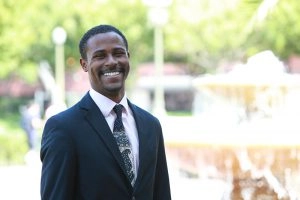Description
When schools reopened amidst the COVID-19 pandemic, education leaders were forced to grapple with a new set of challenges: masking requirements, vaccine mandates and curriculum surrounding critical race theory.
Videos of disgruntled parents storming school board meetings went viral online, igniting more parental interest and involvement in local school board proceedings. Parent-led coalitions formed to oust sitting school board members and elect candidates whose interests aligned more closely. States like Arizona, Missouri, and Florida are working toward measures similar to Tennessee’s that would allow school board candidates to list their party affiliation on ballots.
In this seminar, USC Center for the Political Future (CPF) Director Bob Shrum holds a panel with education experts and school officials to discuss whether more partisanship in school board elections is helpful or harmful. They also question, what is the path forward for mitigating issues among parents, administrators and students? Would an increase in voter participation shift the focus away from students, or improve local accountability?
The panel features Lisa Korbatov, former president of Beverly Hills Unified School District Board of Education; Nick Melvoin, vice president of Los Angeles Unified School District Board of Education; Pedro A. Noguera, Emery Stoops & Joyce King Stoops dean of USC Rossier School of Education; Darline Robles, former superintendent of L.A. County Office of Education and professor of clinical education at USC Rossier. The panel is also moderated by Alan Arkatov, Katzman/Ernst Chair in Educational Entrepreneurship, Technology and Innovation at USC Rossier and Center EDGE founding director.
Who Will Benefit
– Educational experts looking to understand how parent-led coalitions will influence school policies
– Policy makers wanting to know how some states are working toward measures similar school board election measures to Tennessee
– Educators viewing pandemic disruptions as an opportunity to enact lasting change
About Our Featured Faculty
Robert “Bob” Shrum is the director of the USC Center for the Political Future and the Carmen H. and Louis Warschaw Chair in Practical Politics at USC Dornsife College of Letters, Arts and Sciences. A legendary political strategist, he was described as “the most sought-after consultant in the Democratic Party,” by The Atlantic Monthly. He was the strategist in over 25 winning U.S. Senate campaigns, eight successful campaigns for governor, successful campaigns for mayors in major American cities, and numerous campaigns for Congress and other statewide offices. His numerous clients included Edward Kennedy, Joe Biden, John Glenn, and Barbara Mikulski, David Dinkins and Tom Bradley — and John Kerry and Al Gore in their presidential races. Overseas his clients included Israeli Prime Minister Ehud Barak, the British Labour Party, the Prime Minister of Ireland, and the Presidents of Colombia and Bolivia.
Pedro A. Noguera is the Emery Stoops and Joyce King Stoops Dean of the USC Rossier School of Education. A sociologist, Noguera’s research focuses on the ways in which schools are influenced by social and economic conditions, as well as by demographic trends in local, regional and global contexts. He is the author, co-author and editor of 13 books. Prior to being appointed dean of the USC Rossier School of Education, Noguera served as a Distinguished Professor of Education at the Graduate School of Education and Information Studies at the University of California, Los Angeles. Before joining the faculty at UCLA, he served as a tenured professor and holder of endowed chairs at New York University (2004-2015), Harvard University (2000-2003) and the University of California, Berkeley (1990-2000).






